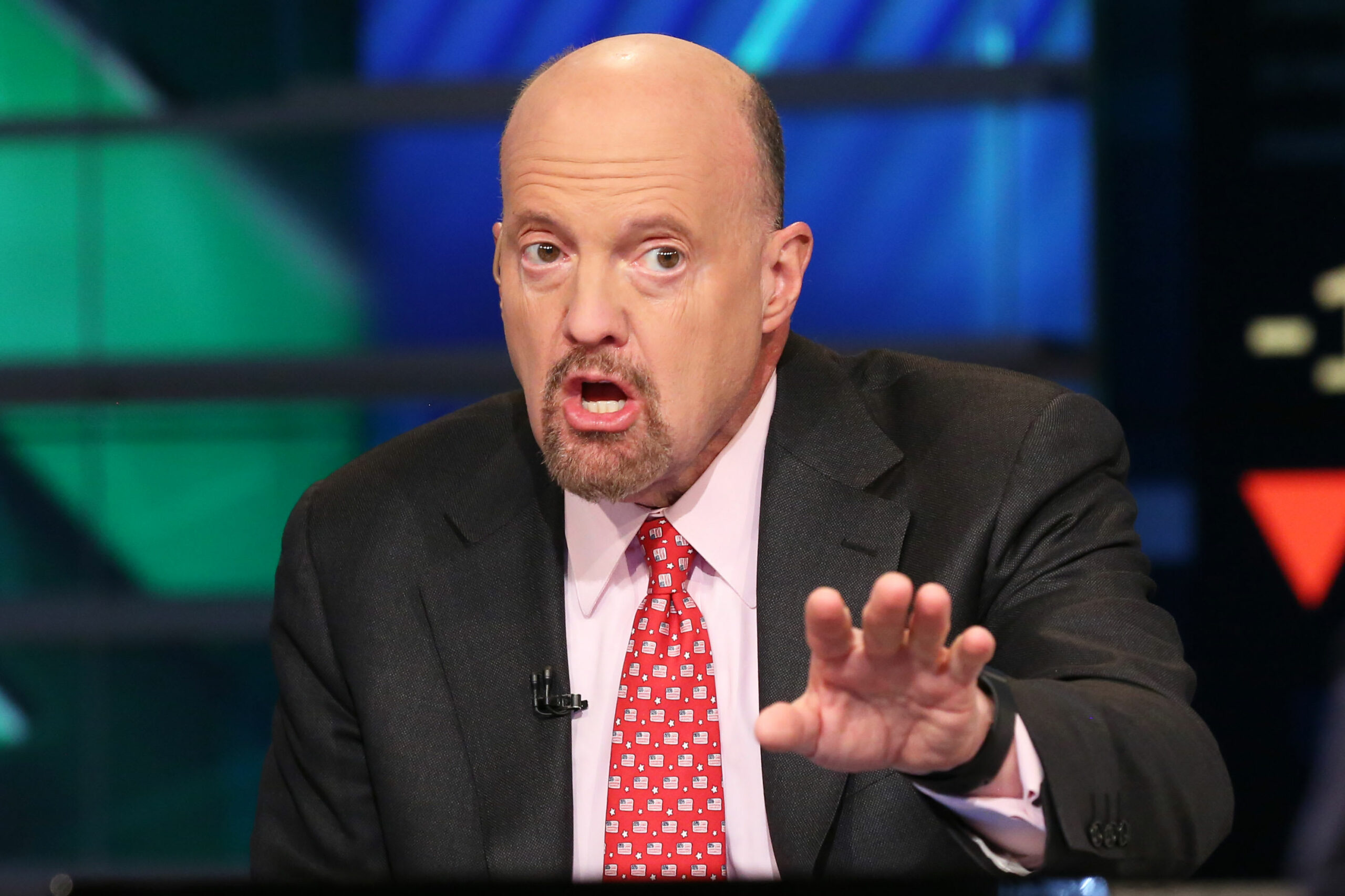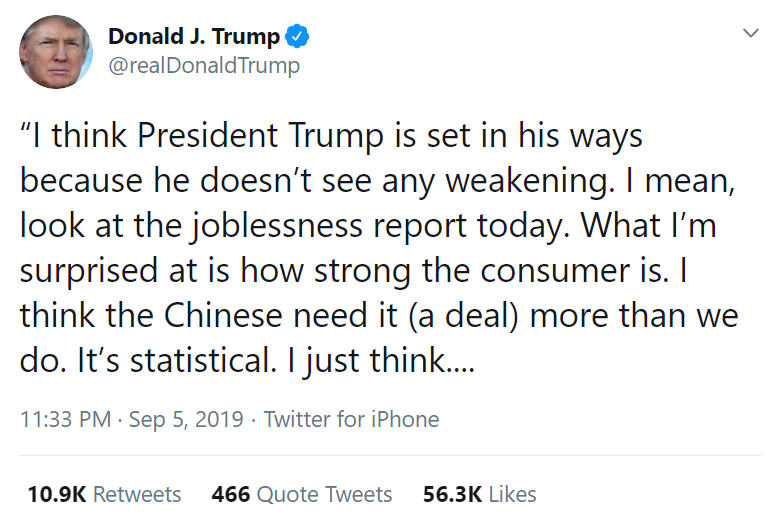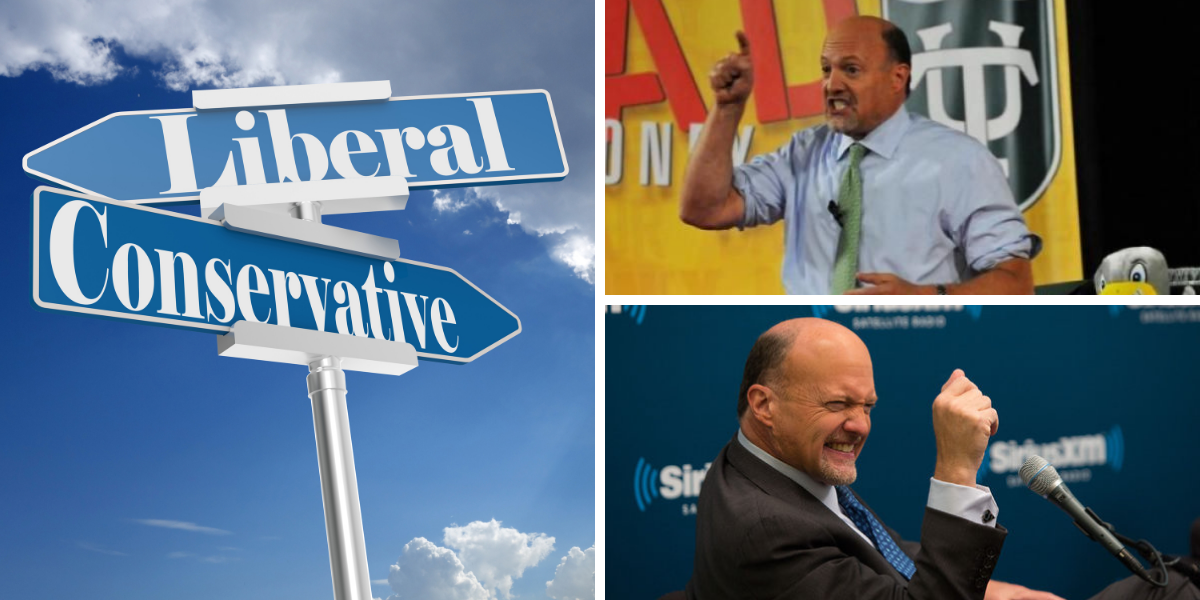Jim Cramer Political Affiliation: A Comprehensive Analysis
Jim Cramer is a well-known name in the financial world, but his political affiliation often sparks curiosity among his audience. As a prominent media personality, stock picker, and financial advisor, understanding his political stance can provide deeper insights into his perspectives on economic policies and global markets. This article delves into Jim Cramer's political affiliations, shedding light on his beliefs and how they influence his financial recommendations.
For years, Jim Cramer has been a trusted voice in the financial sector, hosting the popular show "Mad Money" on CNBC and offering investment advice to millions. However, his political views remain a subject of interest for those who follow his career. This article will explore his political leanings and their implications on his professional life.
By examining his statements, interviews, and public appearances, we aim to present a balanced view of Jim Cramer's political affiliation. Whether you're a financial enthusiast or simply curious about his political beliefs, this article will provide valuable insights into how his political views shape his financial advice.
Read also:Exploring The Lolo Pass Portland Trail A Hikers Paradise
This article is organized into several sections for easy navigation. Each section is designed to provide a comprehensive understanding of Jim Cramer's political affiliations and their relevance to his career. Below is the table of contents to guide you through the article:
- Biography of Jim Cramer
- Jim Cramer's Political Views
- His Stance on Economic Policies
- Public Statements and Interviews
- Media Influence on His Political Views
- How Political Views Affect Financial Advice
- Criticism and Controversies
- Supporters and Allies
- Long-Term Impact of Political Affiliation
- Conclusion
Biography of Jim Cramer
Before diving into Jim Cramer's political affiliation, it's essential to understand his background and career journey. Jim Cramer was born on March 9, 1957, in New Jersey, USA. He graduated from Harvard University with a degree in anthropology and later earned his MBA from Harvard Business School. Cramer's career in finance began at Goldman Sachs, where he worked as a trader before founding his own hedge fund, Cramer Berkowitz.
Early Life and Education
Jim Cramer's early life was marked by a strong academic foundation. Growing up in a family of doctors, he developed a keen interest in both science and business. His education at Harvard provided him with the analytical skills necessary to excel in the financial world. Below is a table summarizing his personal and professional details:
| Full Name | James J. Cramer |
|---|---|
| Date of Birth | March 9, 1957 |
| Place of Birth | New Jersey, USA |
| Education | Harvard University (Anthropology), Harvard Business School (MBA) |
| Profession | Television Host, Financial Analyst, Author |
Career Highlights
Jim Cramer's career is defined by his achievements in the financial sector and media. He gained prominence as the host of "Mad Money," where he shares his insights on stock market trends and investment strategies. His ability to simplify complex financial concepts for the average investor has made him a household name.
Jim Cramer's Political Views
Jim Cramer's political affiliation is often described as centrist or moderate. While he does not strictly align with a single political party, his views reflect a blend of conservative and liberal ideals. This section explores his political stance in greater detail.
Centrist Approach
Cramer's centrist approach to politics is evident in his public statements and interviews. He often emphasizes the importance of balanced economic policies that benefit both businesses and consumers. His moderate stance allows him to appeal to a broad audience, transcending traditional party lines.
Read also:Nashville Metro Nonemergency Number Your Ultimate Guide For Everyday Assistance
Key Political Issues
Jim Cramer frequently discusses key political issues such as tax reform, healthcare, and environmental policies. His views on these topics are shaped by his understanding of their impact on the financial markets. Below are some of the issues he has addressed:
- Tax Reform: Cramer supports tax policies that encourage business growth while ensuring fairness for all income levels.
- Healthcare: He advocates for affordable healthcare solutions that do not burden businesses with excessive costs.
- Environment: Cramer acknowledges the importance of environmental sustainability and its role in long-term economic stability.
His Stance on Economic Policies
Jim Cramer's political affiliation is closely tied to his views on economic policies. As a financial expert, he emphasizes the need for policies that promote economic growth and stability. This section examines his stance on specific economic issues.
Monetary Policy
Cramer believes in the importance of sound monetary policy to maintain economic stability. He often discusses the role of the Federal Reserve in managing interest rates and inflation. His insights into monetary policy are informed by his extensive experience in the financial markets.
Fiscal Policy
When it comes to fiscal policy, Jim Cramer advocates for responsible government spending. He supports measures that reduce budget deficits while investing in critical areas such as infrastructure and education. His approach reflects a balanced view of fiscal responsibility and economic growth.
Public Statements and Interviews
Jim Cramer's political affiliation is often revealed through his public statements and interviews. In these appearances, he shares his thoughts on current events and their implications for the financial markets. This section highlights some of his notable comments.
Interviews with Political Figures
Cramer has interviewed numerous political figures, including presidents and policymakers. These interviews provide valuable insights into his political views and how they influence his financial advice. His ability to engage in thoughtful discussions with leaders from both parties demonstrates his commitment to bipartisanship.
Social Media Presence
Jim Cramer's social media presence is another platform where he expresses his political views. Through Twitter and other channels, he shares his thoughts on political developments and their impact on the markets. His social media interactions reflect his commitment to staying informed and engaging with his audience.
Media Influence on His Political Views
The media plays a significant role in shaping Jim Cramer's political affiliation. As a prominent media personality, he is exposed to diverse perspectives and opinions. This section explores the influence of media on his political views.
News Sources
Cramer relies on a variety of news sources to stay informed about political developments. He often cites reputable outlets such as The Wall Street Journal and The New York Times in his analysis. His reliance on credible sources ensures that his political views are well-informed and balanced.
Opinion Pieces
In addition to news sources, Jim Cramer writes opinion pieces that reflect his political views. These articles provide deeper insights into his thoughts on economic policies and their implications for the markets. His opinion pieces are widely read and respected for their analytical depth.
How Political Views Affect Financial Advice
Jim Cramer's political affiliation has a direct impact on his financial advice. His understanding of political developments and their economic implications allows him to offer informed recommendations to his audience. This section examines how his political views influence his financial advice.
Market Analysis
Cramer's political views inform his market analysis, helping him anticipate trends and make informed investment decisions. He often discusses the potential impact of political events on specific industries and stocks. His ability to connect political developments with market movements is a key strength of his financial advice.
Risk Management
Incorporating political considerations into risk management is another way Jim Cramer's political affiliation influences his financial advice. He advises investors to be aware of political risks and their potential impact on their portfolios. This proactive approach helps investors navigate uncertain times and protect their investments.
Criticism and Controversies
Despite his popularity, Jim Cramer's political affiliation has not been without criticism. Some critics argue that his centrist approach lacks clarity, while others question the influence of his media presence on his political views. This section addresses some of the criticisms and controversies surrounding his political stance.
Centrist Critique
Critics of Jim Cramer's centrist approach argue that it can lead to ambiguity in his political views. They contend that a more definitive stance would provide greater clarity for his audience. However, Cramer defends his centrist position as a reflection of his commitment to bipartisanship and balanced analysis.
Media Bias
Another criticism of Jim Cramer's political affiliation is the potential for media bias. As a prominent media personality, he is exposed to a wide range of perspectives, which some argue may influence his views. Cramer counters this criticism by emphasizing his dedication to presenting objective analysis based on credible sources.
Supporters and Allies
Despite the criticisms, Jim Cramer has a strong base of supporters who appreciate his balanced approach to politics and finance. This section highlights some of his supporters and allies in the political and financial worlds.
Financial Experts
Many financial experts admire Jim Cramer's ability to bridge the gap between politics and finance. His insights into economic policies and their market implications are highly regarded in the financial community. These experts value his contributions to the field and recognize his influence on investment strategies.
Political Figures
Cramer's balanced approach to politics has earned him the respect of political figures from both parties. He has developed relationships with policymakers who appreciate his informed analysis and thoughtful commentary. These alliances reinforce his credibility as a political and financial expert.
Long-Term Impact of Political Affiliation
Jim Cramer's political affiliation is likely to have a lasting impact on his career and the financial world. This section examines the potential long-term effects of his political views on his professional life and the markets.
Legacy in Finance
As a prominent figure in the financial sector, Jim Cramer's political affiliation will be a defining aspect of his legacy. His ability to integrate political insights into financial advice has set a new standard for financial experts. Future generations may look to his work as a model for combining political awareness with investment strategy.
Future Trends
The intersection of politics and finance is becoming increasingly important in today's global economy. Jim Cramer's political affiliation and its influence on his financial advice are likely to shape future trends in the industry. As markets become more interconnected, understanding political developments will be crucial for successful investment strategies.
Conclusion
In conclusion, Jim Cramer's political affiliation reflects a centrist approach that emphasizes balanced economic policies and bipartisanship. His insights into political developments and their impact on the markets have made him a trusted voice in the financial world. By staying informed and engaging with diverse perspectives, Cramer continues to provide valuable advice to his audience.
We invite you to share your thoughts and insights in the comments section below. Your feedback is valuable to us and helps us improve our content. Additionally, feel free to explore other articles on our site for more in-depth analysis of financial and political topics. Together, let's continue the conversation and deepen our understanding of the world around us.


